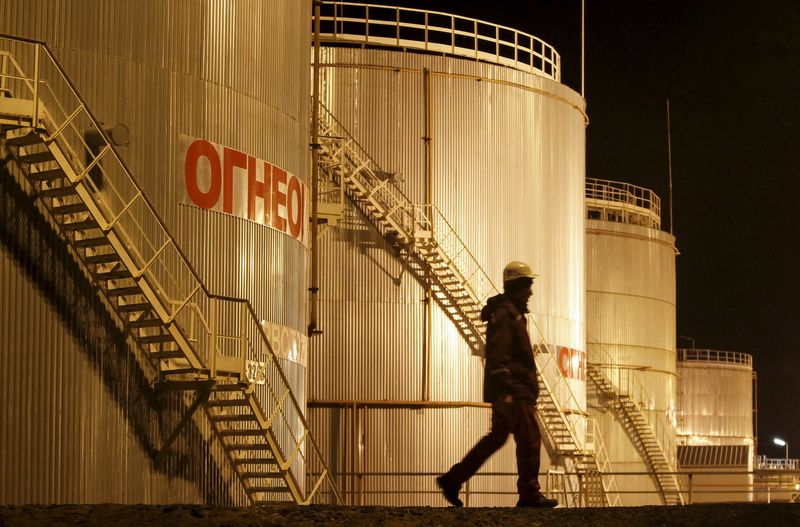* Oil prices down for 4th straight day
* IEA sees oil market balance in 2016
* Brexit camp has "significant lead" ahead of EU vote -poll
* Coming up: API's U.S. oil inventory data at 4:30 p.m. (2030 GMT) (Adds API data expectations, changes quote, updates prices)
By Devika Krishna Kumar
NEW YORK, June 14 (Reuters) - Oil prices fell more than 1 percent on Tuesday, down for a fourth straight day, pressured by investor nervousness over Britain's vote next week on whether to leave the European Union, which overshadowed signs of a return to health for crude after a two-year glut.
Safe-haven German Bund yields DE10YT=RR fell below zero for the first time, while industrial commodities and equity markets, seen as more vulnerable to economic risk, dropped after polls showed Britain's "Leave" campaign leading ahead of the June 23 vote on EU membership. referendum-related concerns eclipsed an upbeat forecast for oil demand growth from the International Energy Agency, which said the oil market is essentially balanced after two years of surpluses. IEA/M On Monday, OPEC forecast that the oil market would be more balanced in the second half of 2016 as outages in Nigeria and Canada help to speed erosion of a supply glut. market was awaiting direction from the American Petroleum Institute (API) data later in the day that was forecast to show U.S. crude inventories fell for a fourth straight week. API/S
Brent crude oil futures LCOc1 fell 72 cents to $49.63 a barrel by 12:49 p.m. EDT (1649 GMT), while U.S. crude futures CLc1 lost 45 cents to $48.33.
"The market seems to be taking today's International Energy Agency forecast in stride, despite both a minor upward revision in demand and a reduction in non-OPEC supply," Tim Evans, energy futures specialist at Citi Futures wrote in a note.
"Overall, the market doesn't seem to have been impressed, taking the update as confirmation of known factors rather than fresh bullish news."
The campaign for Britain to leave the EU has a "significant lead" ahead of the referendum, and about 47 percent of likely voters said they will opt to leave the EU, compared with 40 percent who want to stay, according to a poll of 2,497 people. (the referendum) has rattled a lot of financial and commodity trader/investors with money seemingly starting to flow to the so-called safe-haven U.S. dollar until the dust settles and the voting is concluded," said Dominick Chirichella, senior partner at the Energy Management Institute in New York.
"The strong U.S. dollar versus most currency pairs is a negative price directional driver for the oil complex."
If Britain voted to leave the EU, a prospect dubbed "Brexit", investors fear the bloc could slip into recession, which in turn could undermine oil demand.
The dollar .DXY has risen about 1.7 percent from its June lows against a basket of currencies, spurred by Brexit fears.
Adding to the uncertainty in the markets was the ongoing two-day U.S. central bank meeting.
"Not increasing interest rates would be interpreted as the U.S. economy is not healthy enough for increasing interest rates," a U.S. trader said.
